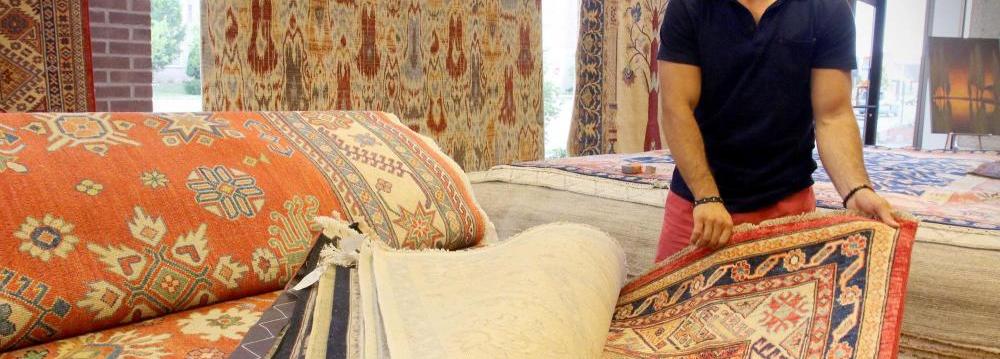Persian rugs are often prized works of art in homes, their roots stemming to Iran where, for hundreds of years, they’ve been handmade by weavers and dyed with natural ingredients.
The lifting of sanctions against Iran in mid-January is expected to make the carpets more affordable, according to third-generation Iranian rug salesman, Hamid Dehbod, Wisconsin-based American news publication WauwatosaNOW reported in a recent article.
World powers, including the US, lifted sanctions against Iran earlier this year in return for the Islamic Republic to limit its nuclear program. The economic embargo was imposed in 2012.
Dehbod predicts his customers will reap the benefits of the new international relationships.
“By the end of this year, we will see a great change that will happen and it’s going to affect everybody,” he said. “It will definitely affect the price and the selection.”
Dehbod said he makes the trip to Iran at least once a year to meet with weavers and rug vendors to purchase the rugs he’ll need for his stores in Wisconsin.
Under the embargo, Dehbod said he switched to buying rugs from Pakistan and India, which were not quite like the Persian rugs he was accustomed to.
“Now, directly, we go to Iran,” he said of the lifted sanctions.
Dehbod’s nephew, Hemad Fadaifar, who also works for the family’s rug business, said when the embargo happened, weavers stopped weaving because the demand wasn’t as high.
“Less rugs were being woven. They were a little bit more scarce and more expensive for everybody,” he said.
“Weavers are starting to weave again. There’s an amazing sense of pride. A big wave throughout the country.”
Dehbod said rug shipments were far from the only industry affected by the embargo.
“Other products like pistachios, saffron and caviar are widely produced in Iran and are likely to be cheaper to consumers in the future,” he said.


